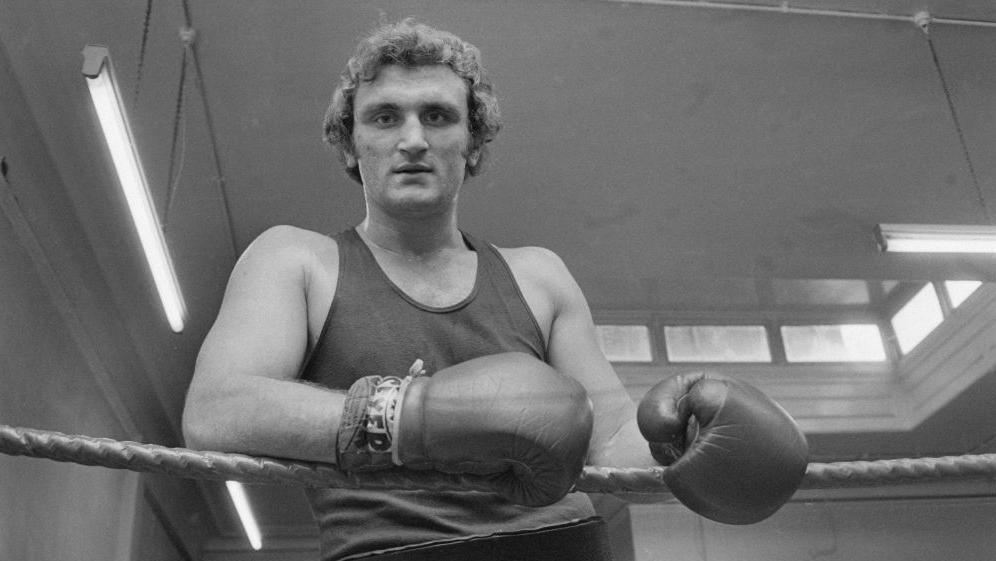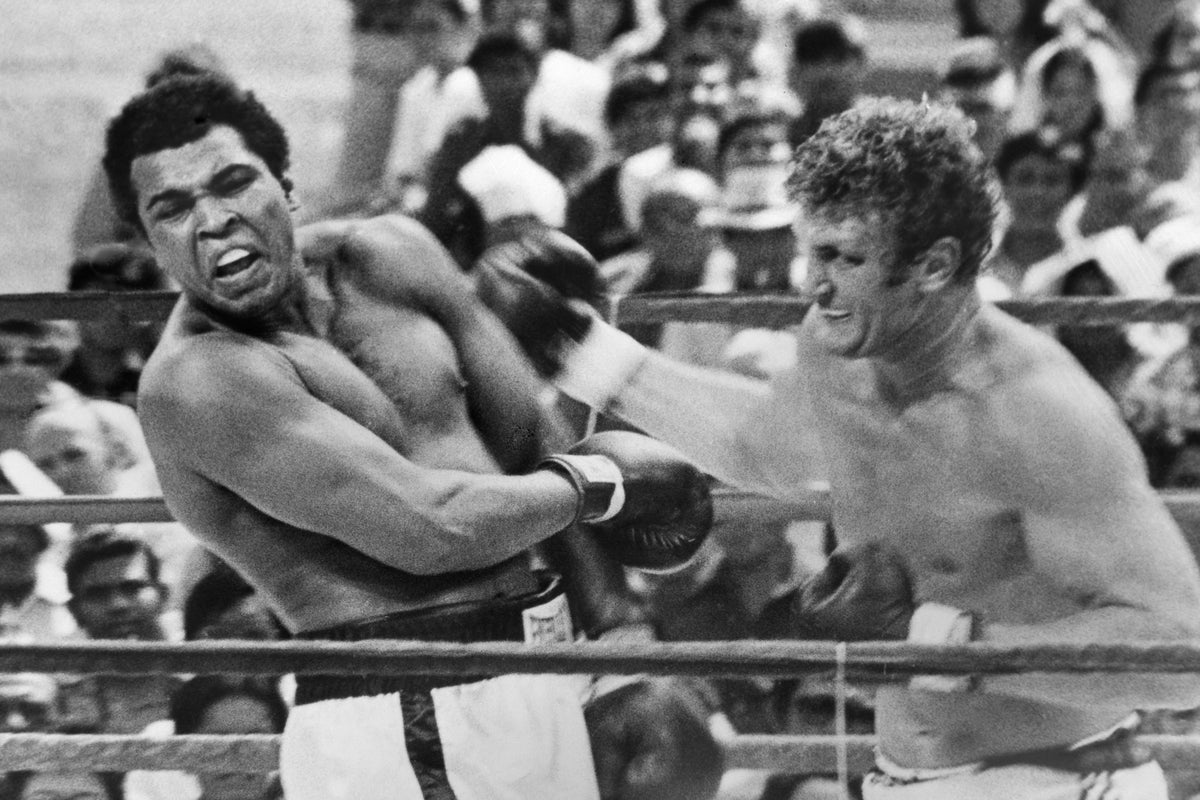“He’s given it to Joe Bugner, and I find that amazing! … How in the world can you take away the man’s three titles like that?!”
Those were the words uttered by legendary commentator Harry Carpenter over a cacophony of boos at London’s Wembley Arena in on March 6, 1971, moments after the bout’s lone judge and referee, Harry Gibbs, controversially awarded Bugner the decision win over Henry Cooper.
Advertisement
Bugner became the British, Commonwealth and European heavyweight champion that night — at a time when those domestic titles held real meaning — but in some ways, he was never forgiven for it.
Cooper, nicknamed “Our ‘Enry,” had been a beloved figure for the British public, a national treasure. Although it was not Bugner’s fault, he was never forgiven for retiring Cooper with a contentious decision and ending Cooper’s 12-year unbeaten record in British and Commonwealth title fights. Bugner was never loved by the British public in the same way Cooper and other great British heavyweights were.
“I won, but I lost everything,” Bugner said years later of that win. “I was hated for it, never allowed to forget it.”
Bugner, who retired in 1999 with a 69-13-1 record after a 32-year professional career, died on Monday at age 75. He fought the best the heavyweight division had to offer in its golden era of the 1970s and challenged once for the WBC title in 1975. He shared the ring with Muhammad Ali (twice), Joe Frazier, Earnie Shavers, Ron Lyle and Frank Bruno, among others, as part of a stellar résumé.
Advertisement
Born in Szoreg, Hungary in 1950, Bugner was forced to flee to the United Kingdom in the late 1950s as a result of the Soviet Union’s invasion of Hungary in 1956. He began boxing in the mid-’60s and had 16 amateur bouts, amassing a 13-3 record, before being persuaded to turn professional at just 17 years old by trainer Andy Smith.
It was a disastrous start in the paid ranks for Bugner, who lost his 1967 pro debut to journeyman Paul Brown. Nevertheless, Bugner went on to win 31 of his next 33 fights before dethroning Cooper of his titles four years later in London.
Bugner suffered defeats to Ali and Joe Frazier in back-to-back fights in 1973. His lone title challenge came in his rematch with the legendary Ali in 1975 in Kuala Lumpur, where he again lost on points.
Advertisement
Bugner’s first retirement from boxing was in 1977, but it lasted just three years. He hung up the gloves for a second time after being stopped by Frank Bruno in 1987 in front of 32,000 fans at White Hart Lane, the longtime stadium home of Tottenham Hotspur Football Club. This time, he didn’t enter the ring again for eight years. However, in 1995, at the age of 45, Bugner — who had by then relocated to Australia — decided to make a comeback, largely for financial reasons.
“It’s something you reflect back on, and you say, ‘God, these bastards really had me,’ because again, here was the goose that was laying all these big eggs, and somebody else was getting all of the [money],” Bugner said of the infamous “Cartel” group of promoters in a 1993 episode of the “Dispatches” documentary program.
July 2, 1973: Heavyweight legend Joe Frazier (L) faces off against Britain’s Joe Bugner at Earls Court Arena in London.
(- via Getty Images)
“The Cartel,” which consisted of Mickey Duff, Jarvis Astaire, Mike Barrett and Terry Lawless, controlled British boxing for much of the second half of the 20th century. Under their monopoly, accusations swirled that boxers were underpaid for their services due to the uncompetitive nature of the sport’s promotional business. Bugner was one of the victims of that monopoly.
Advertisement
When he retired to Australia, he bought a vineyard, but when that venture failed, Bugner was again forced to return to the sport a decade after his best days were clearly behind him.
Bugner waged nine more fights in the ring from 1995 to 1999 before hanging up the gloves for good. He fought overmatched opposition, mostly in his adopted home of Australia, yet even defeated former WBA heavyweight champion James “Bonecrusher” Smith via first-round TKO in 1998 at the age of 48.
Bugner will be remembered for his world-class jab and brilliant defensive skills. Although his style wasn’t always fan-friendly, his ability was undeniable.




